D K Sharma: ‘Electric mobility will disrupt the tooling technology in the next 10 years’
D K Sharma talks about the opportunities and challenges for tool rooms, and what Godrej Tooling is doing to be a preferred partner for the automotive industry.
D K Sharma, executive vice-president and business head, Godrej Tooling, and president, Tool and Gauge Manufacturers Association of India (TAGMA India) talks about the opportunities and challenges for tool rooms, and what Godrej Tooling is doing to be a preferred partner for the automotive industry.
What are the prerequisites for the tooling industry to withstand and grow amidst the disruptions in the automotive industry?
Concurrent engineering is the key to a toolmaker. What is important for the tool maker is to understand what the client wants and that can happen only if the RFQ (Request For Quotation) is sent. But if you engage with your client after the enquiry is floated, you are gone. It takes time and energy to engage with important clients.
D K Sharma: 'We start engaging with the OEM as early as the conception stage of the part or engineering, the shape of the car or two-wheeler. It is a pre-requisite."
What we at Godrej Tooling are doing is, start the engagement with the OEM as early as the conception stage of the part or engineering, the shape of the car or two-wheeler. It is a pre-requisite. Then it’s talking to the OEM about developing the right part. So the dialogue between the tool maker and the OEM and its R&D goes on for a long time. Having done so much research and then having so much of knowledge of that part, there is no way that I can lose the order for that part.
So Godrej Tooling does it before the RFQ is done?
Yes, before. That is what the relationship is all about. The OEM will anyway get that part made, but the comfort level that you achieve during the course of this R&D, they cannot find a better tool maker to do that. This is not only an order-winning criterion but also to make sure to deliver it on time. If somebody starts three months down the line, how can I match my pace when there is a need for delivering the first part right?
How many tool rooms are there in India, and what is the current size of the industry?
Nearly 2,000 but not all of them are registered. Around 650 of them are with TAGMA India but there are many small tool rooms that are not registered with us. The size of the industry — imports, exports and the domestic market — is about Rs 16,000 crore.
How do you view the industrial machines business growing?
I consider industrial machines as part of the tooling industry because for making any component in large numbers, you need fixtures. So we at Godrej have ventured into making them.
The non-automotive business is rail and metro. With rail, metro infrastructure coming up in India at a very fast pace. There is a big opportunity
for us to make fixtures for coach building and wagon building. We supply to Alstom India, which has also given us the opportunity to handle its global network. So, we have supplied to France and Germany too.
How much of Godrej Tooling’s business comes from automotive? In terms of your share in the auto tooling industry, where do you stand?
Industrial machines account for 20 percent, while 80 percent is contributed by die casting and press tools which cater to automotive. We have recently started venturing into non-auto for press tools. We are considered one of the largest commercial tool rooms, where the numbers are not that fancy. Beyond a point, growth is a big challenge, more so a very big tool room.
At what rate is the company growing?
Thirty percent, but then we have to also sustain it. You cannot grow if you have not honed up your skills and if you try variety. If you want to become good in making a particular product, say the roof of a car, then you have to invest to build R&D capabilities. You just can’t say that I will do R&D on the ordered product.
Godrej Tooling has built capabilities to build tools for a wide range of components, such as motorcycle and car fuel tanks to the engine hood of a tractor. Sharma seen here with a few key members of the Godrej Tooling team.
Once you establish yourself, then you can open up yourself to the market. The Honda Activa is the largest selling two-wheeler in the world. We are making all the tools — side panels, the body part as well as the engine for the Activa. Never in the history of sheet metal tooling as many as six sets are required to be made at any point in time.
How many OEMs do you supply to?
We cater to all the major OEMs in the domestic market. We have also made some exports to Daimler in Germany.
You said earlier you had the luxury of time in terms of development time of the model from the conceptualisation stage?
I never said that I have the luxury of time, I compared what I compared with the developed world. They have the luxury. I have never enjoyed that luxury. But even that luxury is wiped out. So when I make a tool, you have to get the first component out of that tool, which goes on to making the prototype of the car. So this first event is very, very critical to beat the timeline. Earlier I used to be given six months for producing that first part which will go on to the vehicle. Today, I am being asked to give it in four months. Therefore, this need for concurrent engineering and your ability to deliver.
How big is your team?
About 450 people, of which 180 are management staff. And 50 percent of them are all designers.
Will electric mobility bring significant disruption to the tooling industry? As the number of parts come down, will business will also reduce?
No, not in the near future. It is going to disrupt the tooling technology, I guess in another 10 years from now. A few years down the line, we will realise that we need to venture into other areas.
There will be less number of toolings and the type of parts which are required. It would not be as challenging as today for the parts are much simpler and lesser in number. So, if I can make the most complex cylinder tool for die casting, then there will be a very small thin mould of components which will go into an electric car. We have started working on building capability for those.
What new areas have you started working on?
Lightweighting. A new engine needs to be designed with a different outlook. Earlier the wall thickness used to be around 10mm; now we are figuring out how to design it in 2mm. Design is one part, the manufacturability of 2mm requires a different technology intervention.
How many parts do you help make?
Every third two-wheeler you see on the Indian road is a part of tooling of Godrej Tooling. Every third car which you see on the road has a (sheet metal) part produced from us. Every Maruti car has a fuel tank made by us.
What are the key challenges for the tooling industry and for Godrej Tooling?
Keeping pace with technology and changing times. It is not only acquiring an asset. It is grooming up your people in terms of knowledge base. The second is the skill level. Skill levels are scarce in any manufacturing domain, but here it is all the more because of the design part. Very few people have design capabilities.
How cost competitive are you, compared to say a tool room in Europe?
About 30 percent. But if someone wants European quality at 50 percent of the European cost, then that is not possible. That amounts to slightly more than the material cost, which is impossible! But you have to create a position for yourself. You have to establish yourself.
(This interview was first featured in the December 15, 2018 Anniversary issue of Autocar Professional)
RELATED ARTICLES
INTERVIEW: "EV Demand is Rebounding both in India and Around the Globe" - JLR's Rajan Amba
Jaguar Land Rover India MD Rajan Amba discusses the India–UK FTA, the company’s manufacturing plans, the upcoming Panapa...
TVS Celebrates 20 Years of Apache, Eyes Premium and Global Push
Marking two decades of its flagship performance brand, TVS Motor unveiled special anniversary editions on Saturday while...
Q&A: Mahindra's Nalinikanth Gollagunta on Upcoming Festive Season, 'Bold' Design Choices
Automotive Division CEO Nalinikanth Gollagunta says mid-teens growth is achievable with Roxx ramp-up, BEVs, and a resil...






 By Autocar Professional Bureau
By Autocar Professional Bureau
 02 Mar 2019
02 Mar 2019
 29016 Views
29016 Views




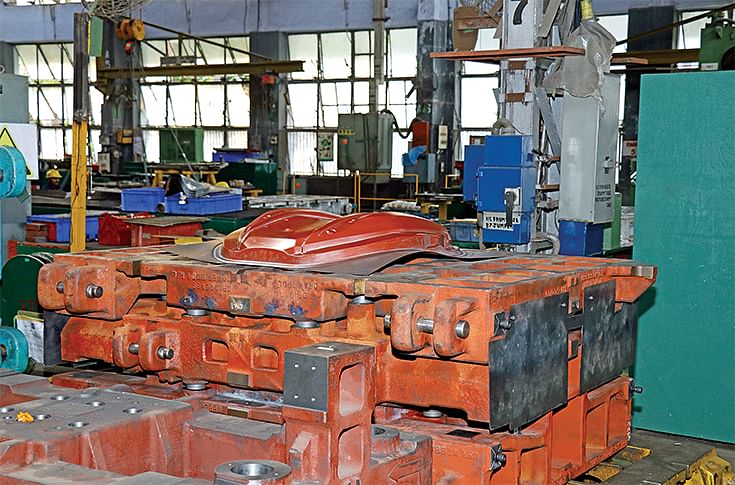
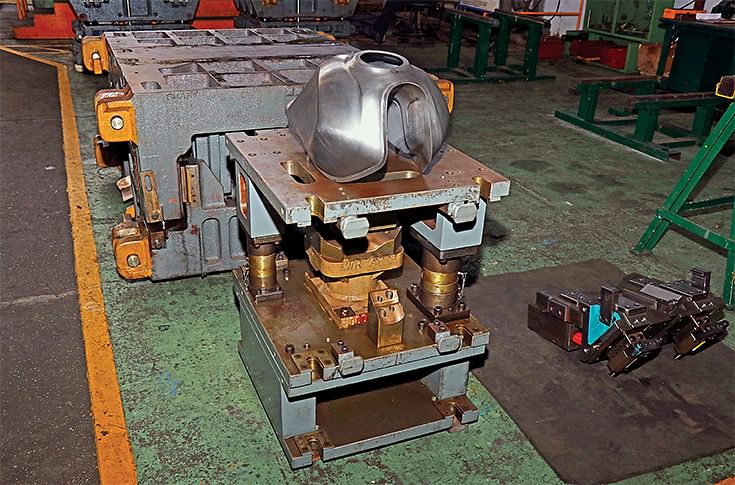
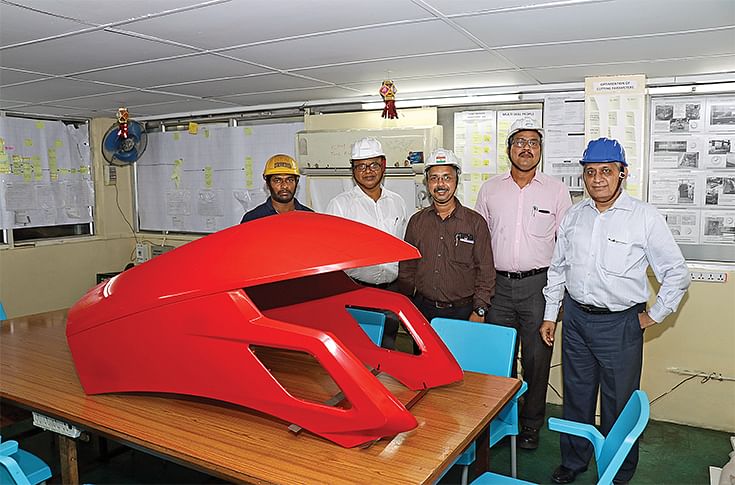
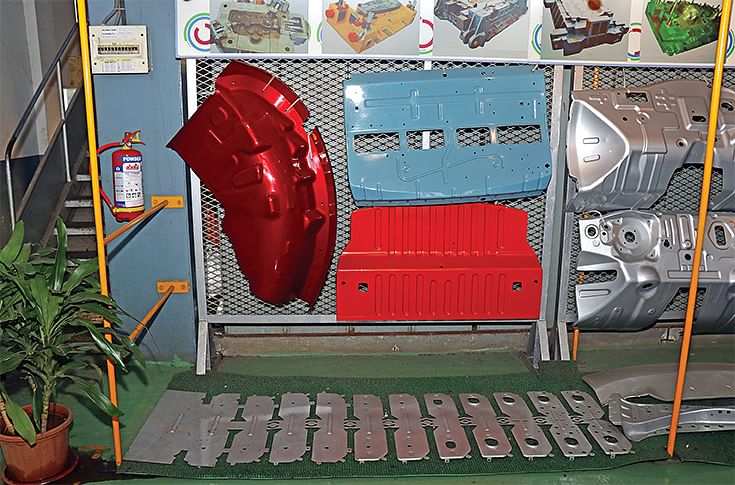
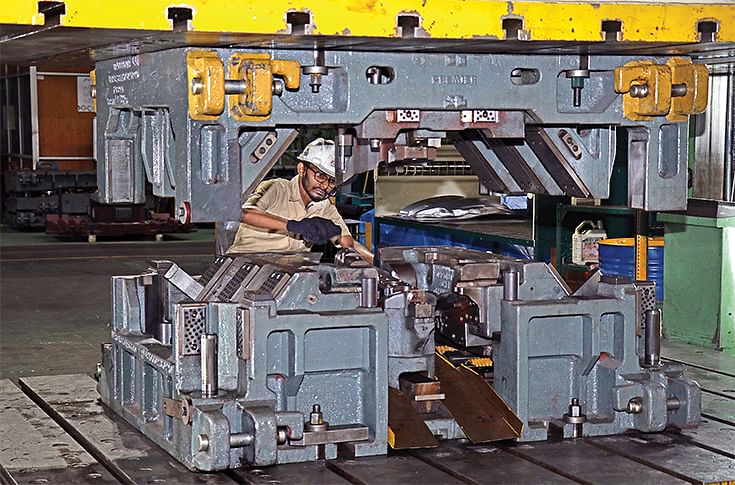


 Prerna Lidhoo
Prerna Lidhoo


 Darshan Nakhwa
Darshan Nakhwa


